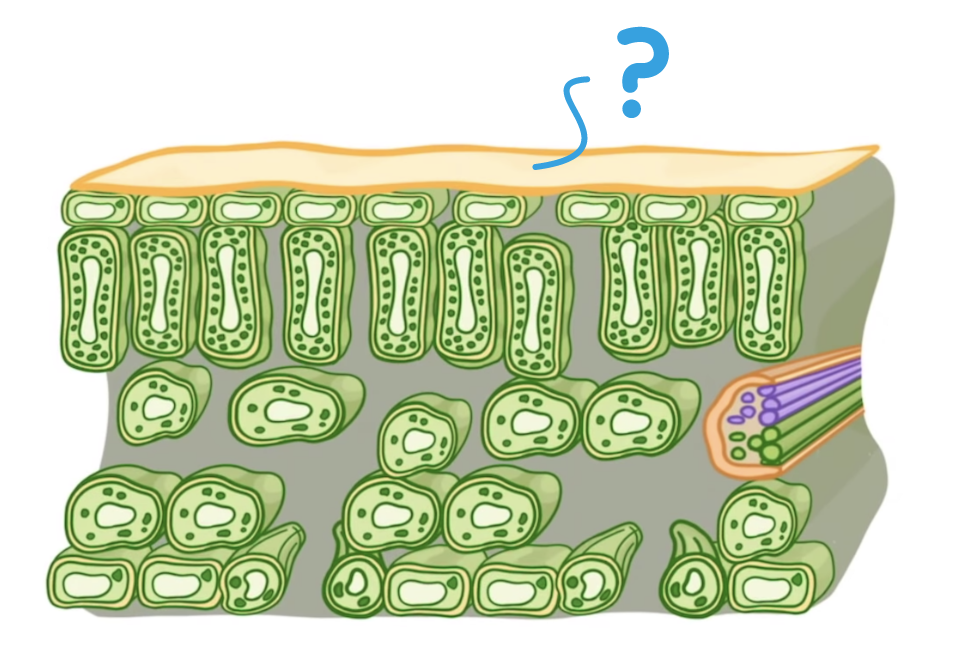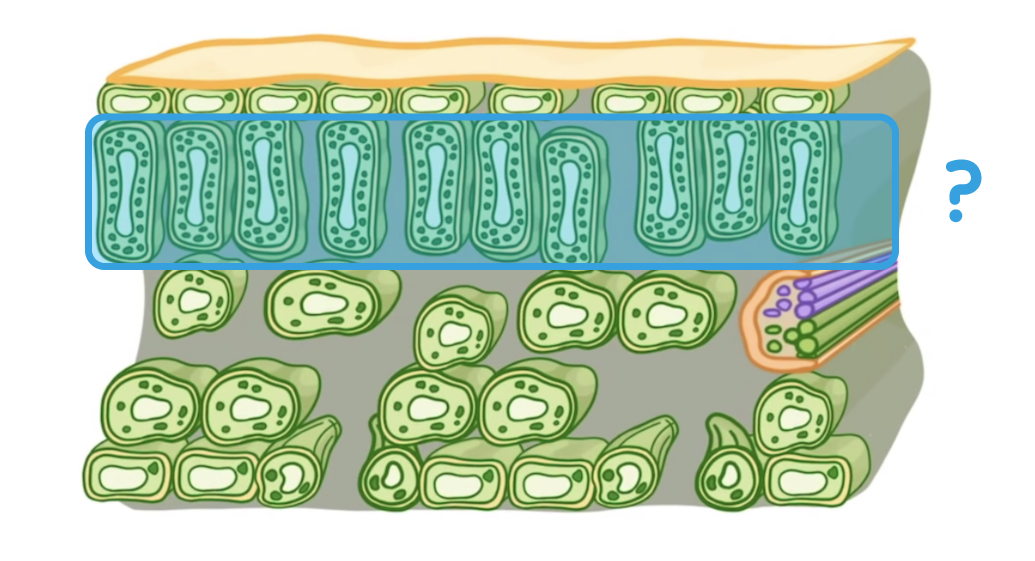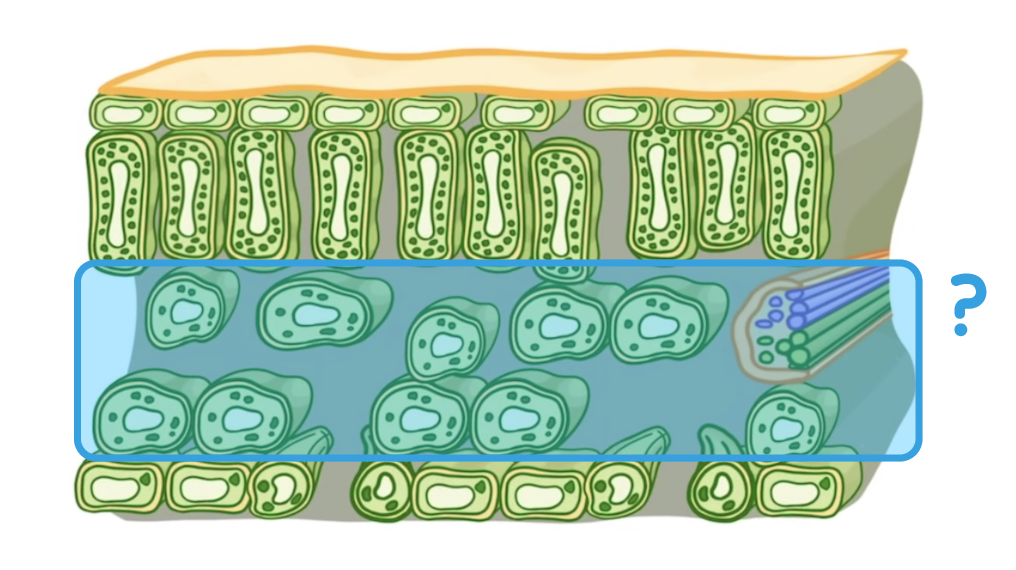Plant Cell Organisation
This lesson covers:
- The structure of a plant leaf
- The levels of organisation in plants
The four levels of plant organisation are:
➔ tissues ➔ ➔ organ systems
|

The leaf is an example of an:
Cell
Organ system
Tissue
Organ
|
The root, stem, and leaves, together make up an:
Tissue
Organ
Organ system
Cell
|
A guard cell is an example of a:
Tissue
Organ
Cell
Organ system
|
The palisade mesophyll layer is an example of a:
Cell
Tissue
Organ
Organ system
|

Which part of the leaf is indicated on the diagram above?
|

Which structure is highlighted on the diagram above?
Upper epidermis
Spongy mesophyll layer
Palisade mesophyll layer
Lower epidermis
|

Which structure is highlighted on the diagram above?
Lower epidermis
Spongy mesophyll layer
Palisade mesophyll layer
Upper epidermis
|

Which structure is highlighted on the diagram above?
Lower epidermis
Palisade mesophyll layer
Upper epidermis
Spongy mesophyll layer
|

What name is given to the cells highlighted on the diagram above?
|

What name is given to the openings indicated on the diagram above?
|
opaque / transparent / smooth / palisade / mesophyll / guard
The upper epidermis is so that light can pass through it. This means that as much light as possible can reach the mesophyll cells below, and be used in photosynthesis.
|
Which structures help to minimise water loss?
(Select all that apply)
Lots of spongy mesophyll cells
Guard cells which can close stomata
Waxy cuticle
Transparent upper epidermis
|
flaccid / turgid / opens / closes / enter / leave
If there is plenty of water in the leaf, guard cells become , which the stomata. This allows carbon dioxide to the leaf, but also allows water to escape.
|
At night time, when photosynthesis can't take place, are the stomata normally open or closed?
Open
Closed
|
What is meristem tissue and where is it found?
|